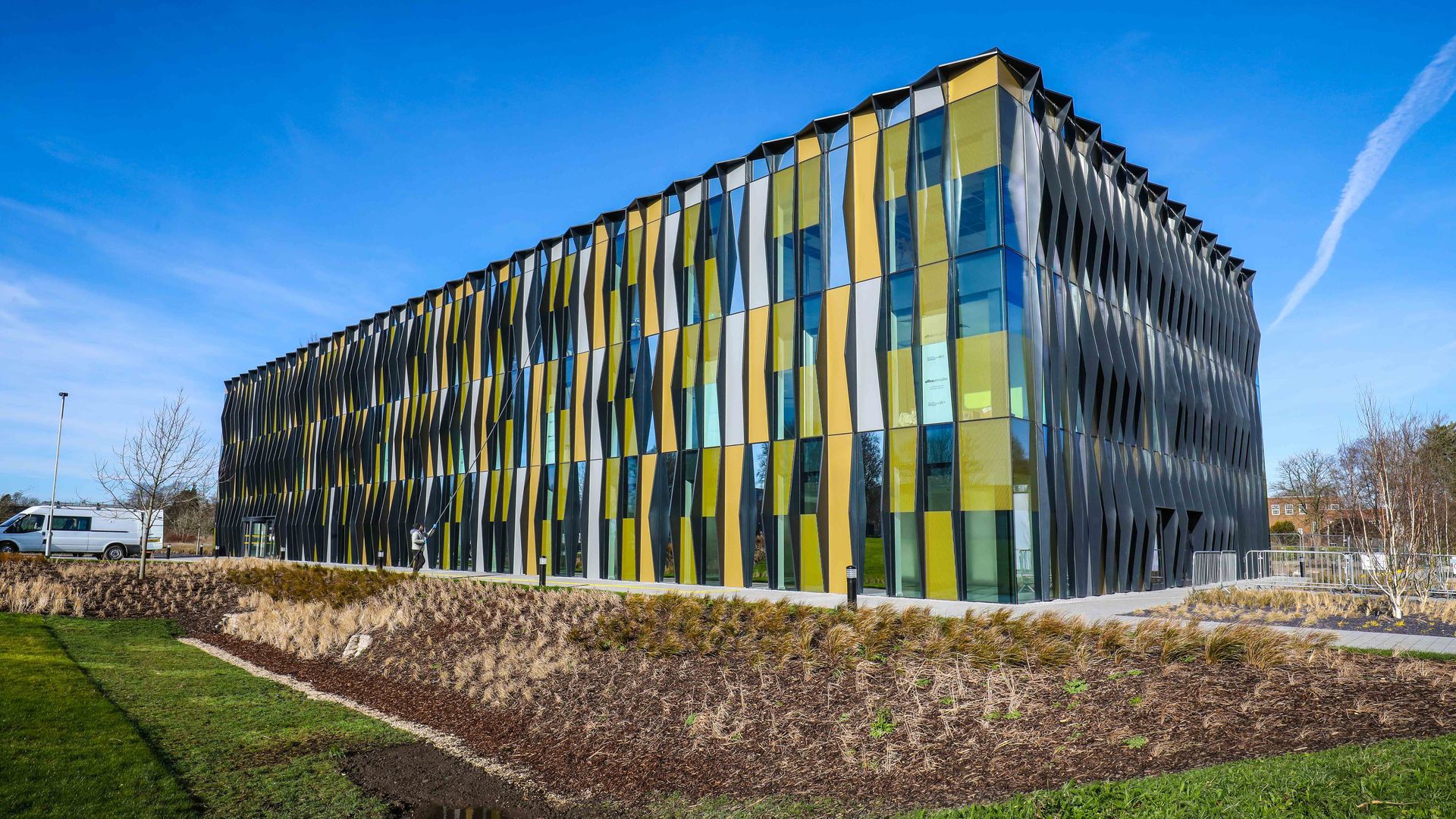Feb 23, 2018 - Energy & Climate
The U.K. gets into the battery race
Add Axios as your preferred source to
see more of our stories on Google.

The Faraday Institution will be housed in this building at Harwell in England. Photo: Harwell.
Add Axios as your preferred source to
see more of our stories on Google.

The Faraday Institution will be housed in this building at Harwell in England. Photo: Harwell.